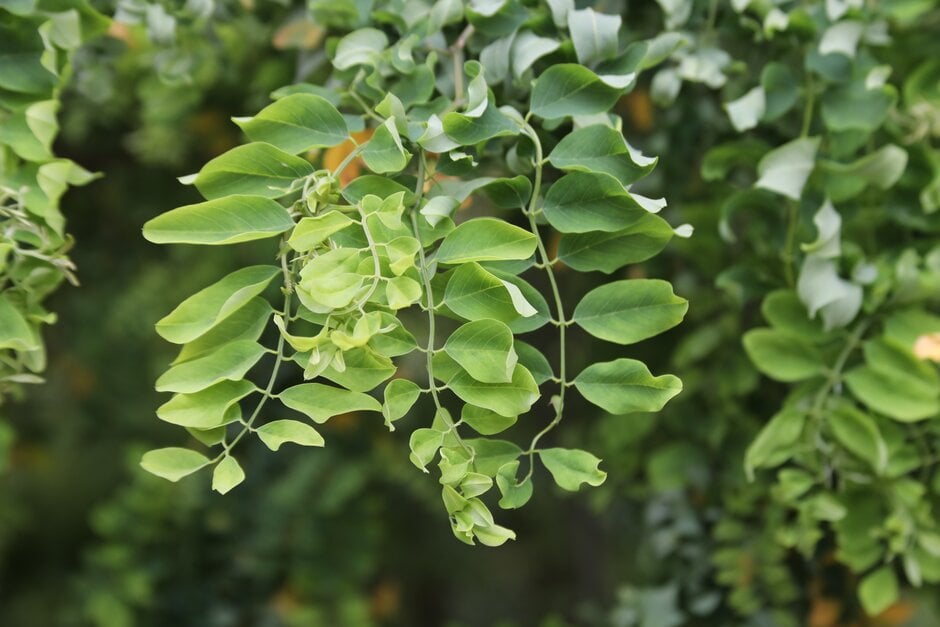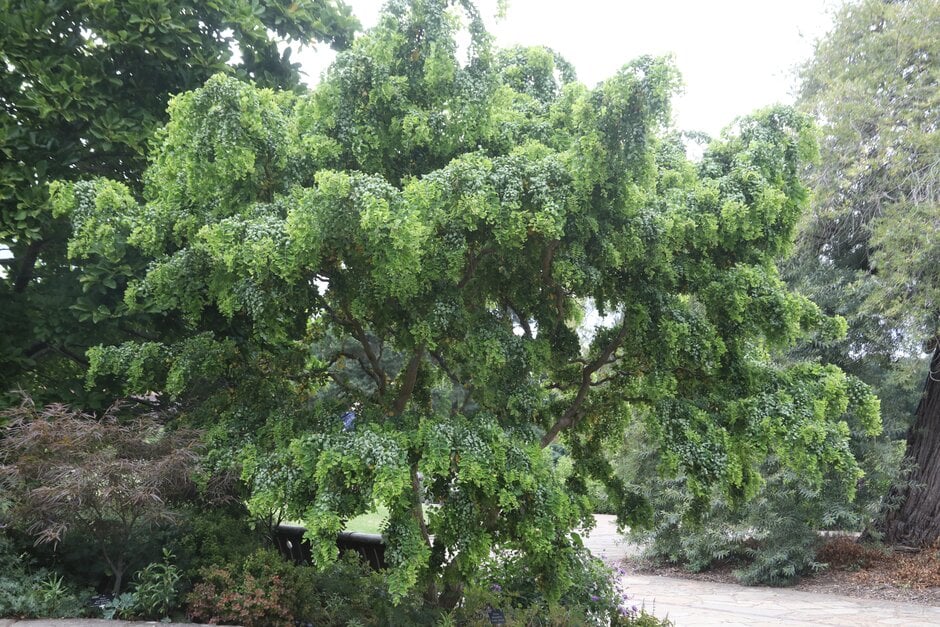Robinia pseudoacacia 'Twisty Baby'
false acacia 'Lace Lady'
A slow-growing deciduous tree with twisted stems and curly leaves, reaching about 3m. The leaves are green with many pairs of rounded leaflets, turning yellow in autumn.
Size
Ultimate height
2.5–4 metresTime to ultimate height
10–20 yearsUltimate spread
2.5–4 metresGrowing conditions
Moisture
Well–drained, Moist but well–drainedpH
Acid, Alkaline, NeutralColour & scent
| Stem | Flower | Foliage | Fruit | |
| Spring | Green | |||
|---|---|---|---|---|
| Summer | Green | |||
| Autumn | Yellow | |||
| Winter |
Position
- Full sun
- Partial shade
Aspect
East–facing or North–facing or South–facing or West–facing
Exposure
Exposed or ShelteredDrought resistance
Yes Hardiness
H6Botanical details
- Family
- Fabaceae
- Native to GB / Ireland
- No
- Foliage
- Deciduous
- Habit
- Spreading branched, Columnar upright, Suckering
- Potentially harmful
- Harmful if eaten, skin irritant. Wear gloves and other protective equipment when handling Pets: Harmful if eaten, skin irritant - for further information and contact numbers regarding pets, see the HTA guide to potentially harmful plants
- Genus
Robinia are vigorous suckering trees and shrubs, sometimes thorny, with pinnate leaves and racemes of pea-type flowers in early summer, sometimes followed by seed pods
- Name status
Accepted
How to grow
Cultivation
Grow in any soil in good light. Remove any suckers that grow, which may have long thorns. For more advice see tree cultivation. Has the potential to become a nuisance if not managed well
Propagation
Suggested planting locations and garden types
- City and courtyard gardens
- Patio and container plants
- Wildlife gardens
Pruning
Pruning group 1 or Pruning group 7; pruning should be done in late summer or early autumn to prevent bleeding; sucker removal if necessary, in autumn
Pests
Generally pest-free
Diseases
May be susceptible to honey fungus
Love gardening
Sign up to receive regular gardening tips, inspiration, offers and more
View our Privacy Policy
Get involved
The Royal Horticultural Society is the UK’s leading gardening charity. We aim to enrich everyone’s life through plants, and make the UK a greener and more beautiful place.

